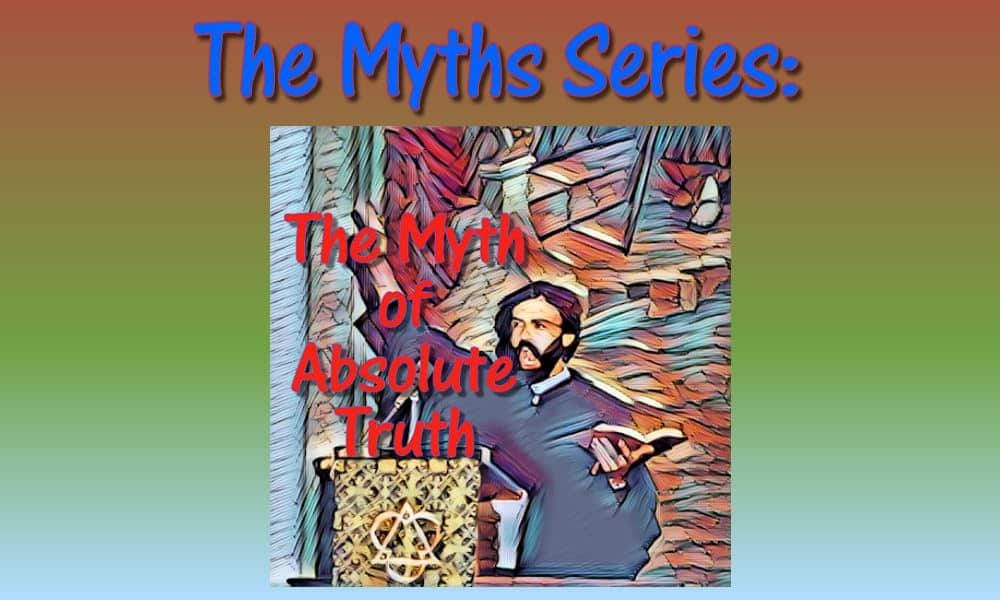- Is-ness: Life is not as it is. Life is as you are — The Myths Series
- The Myth of Absolute Truth — The Myths Series
- The Myth of Right and Wrong — The Myths Series
- The Myth of the Threat of Change — The Myths Series
- Unraveling the Myth of Shoulds — The Myths Series
- The Myth of Fairness — The Myths Series
- The Myth of No Consequences — The Myths Series
- The Myth of Altruism — The Myths Series
- The Myth of Easy — The Myths Series
- The Myth of Scarcity — The Myths Series
- The Myth of Limitations — The Myths Series
- The Myth of a Soulmate — The Myths Series
- The Myth of Sex Equaling Intimacy — The Myths Series
- The Myth of a Self — The Myths Series
- 5 Ideas About Compassion
The Myth of Absolute Truth — we hate not knowing, but the reality is, most of life is a mystery to be lived, not a puzzle to be solved.
Of Wayne’s many books, the one closest to today’s topic is: This Endless Moment

This Endless Moment
An excellent guide to life and living.
Learn to focus your attention of who you really are.
Purchase all formats from Amazon
Purchase digital versions
(Apple, Nook, Kobo, etc.) from this page
Interesting Factoid: Einstein made his significant discoveries by the time he was in his early 30’s.
From that point on, he spent his time frustrating himself trying to discover what is called the “Unified Field Theory.” To quote Compton’s On-Line Encyclopaedia,
In their work some physicists have tried to construct a unified field theory that would describe all fundamental forces in nature and the relationships between elementary particles in terms of a single theory. So far, all such attempts have failed, though experiments and tests of several hypotheses are still under investigation.
Gravity has not yet been accounted for in a unified field theory … In physics, forces can be described by fields that mediate interactions between separate objects, such as between planets or between electrons…in the early 20th century, Albert Einstein developed general relativity, his field theory of gravitation.
Einstein and others later unsuccessfully attempted to construct a unified field theory in which electromagnetism and gravity would emerge as different aspects of a single fundamental field.
Loose Ends — when the pieces won’t fit
Human beings hate loose ends — those unsolvable moments that surround us. our hatred of the unknown or the unsolvable is almost pathological. They prefer The Myth of Absolute Truth.
As infants, we were told how to view things. This conditioning is necessary, as we need explanations for… well… everything.
We don’t realize that we are not being given “The Myth of Absolute Truth.” We are being given one version of many. In my books, I’ve called this the imprinting of Tribe & Culture. (T&C)
Because our parents are big and keep us alive… because tribes are powerful — the message comes across that there is only one way to see things — and “coincidentally” it’s the way our parents, tribe and educational system see things.
For many people, this restrictive view of the universe, faith, life-perspective — never changes.
Some will argue that there is change during adolescence.
Adolescents are notorious for thinking that their opinions are totally unique. This is, of course, foolishness.
Adolescence is nothing more than a time for trading one “herd” for another. One The Myth of Absolute Truth for another.

When I look at photos of myself from University in the late 60s, I certainly looked different from my parents. But I perfectly blended in with my peers. Long hair, beard, weird clothes… all markers of my new “tribe.”
For most, the main thing is “belonging”… and to belong is to accept the “Absolute Truth” of the beliefs espoused by group to which one belongs.
The most blatant example of this today Is MAGA. Nothing, it seems, will blow MAGA beliefs out of the heads of its herd, despite evidence to the contrary.
We play the absolute truth game so that we don’t scare ourselves with how unpredictable life is.
We don’t want to think about how “different” each of our world-views are — going there, doing that, and your head might explode. We desperately want “people” to “get it.” The “it” we want them to “get,” is how we see the world.
Many people continually frustrate themselves over how stupid other people are.
Being in Costa Rica is a great demonstration.
Many are the expats down here who bemoan the “Tico way.” I do this every time I repair something plugged into the electrical grid.
Back home in Canada, I “wire to code” — a euphemism for following the rules. Here, wires poke out of concrete block, are taped together, no boxes, etc.
I want to fix it all, and then I calm down and just put things back the way they were, only working.
But others loudly proclaim how slow and backward things and people are. I just laugh and remind them that “You ain’t in Kansas any more.”
This also plays out in “field dependency. (FD)”
FD is defined as continually monitoring “the field,” and then adapting one’s self and one’s view to that “field” — to the people around us.
It’s what we’re describing above, under adolescence, but broader. It’s captured in the line, “What would people think?”
The FD person will move mountains to fit in, even if what they are choosing to do flies in the face of who they are. So, we end up going off in two directions at once.
We attempt to become the people we choose to relate to while at the same time we attempt to create universal rules (our personal version of The Myth of Absolute Truth) that others “should” abide by, never noticing that those rules “just happen” to be what we already believe to be so.
The stronger the latter belief, the more arrogant the person becomes. And the more closed.
The solution to this “Myth of Absolute Truth” is to “get over yourself.”
The getting over involves letting go of thinking that there is a “Unified Field Theory of Behaviour.” If there is one, it is this: “Everything is changing and nothing is true.” Here’s a long quote from Brad Blanton, author of Radical Honesty, on this topic: (pg. 239f)
How Things Are
None of us are ever really looking at how it is out there. I have my view of “how things are.” You have your view of “how things are.” We have to depend, in case of disagreement, on another nut like ourselves (a friend, therapist, or judge) with some other view of “how things are” to arbitrate for us.
And it’s no accident that “arbitrate” comes form the same root word arbitrary. The truth is, none of us ever know what is going on. We just agree to have beliefs in common as a way of keeping things together.
It’s amazing how we copy each other’s views so well that we can have such organized living. It’s pretty amazing how groups of us are willing to defend to the death our interpretations against other groups’ interpretations, or punish “crooked” interpretations within our own groups.
It’s amazing because there is really no way to tell if “out there” is out there or not. But whatever it is, it’s all created by individual beings, who then get together and agree what to call it.
Assuming that seeing, hearing, smelling and so on are chemical reactions in organisms, then each individual organism, as I argued in Chapter One, is the creator of the world.
We have to see if our creations agree with each other by doing a lot of cross-checking in the course of growing up.
Even then, just at the perceptual level, it’s hard to get agreement among people about what the world really is and what it is like. Science is a formal attempt to agree on the criteria we are willing to accept as a basis of agreement, in advance of any agreements.
In that way the laws and agreed-upon assumptions of science are just like the laws and agreed-upon assumptions of the U.S. Constitution. We humans have spent a lot of time and energy for the past several thousand years trying to get clear on our agreements about perception and our agreements about value. People kill each other by the minute over what it all means.
The solution probably won’t ever be just having everyone believe the same thing. Instead of working toward commonality of views, we need to work toward common acceptance of the principle of variety.
We need a variety of ways to look at how things are, because ultimately we have a better chance of supporting each other with a lot of ways of viewing things.
It may feel less secure than if everyone agrees on what is true, but feeling of security is just that — a feeling, not the real thing.
Less secure is often more reliable. If there is not enough variety preserved in the gardens of illusion about “how things are,” then some version of 1984 totalitarianism will come true. This scenario is almost as bad as the more tragic one of being blown away or dying of poison.
I think communal acceptance of variety of illusions, with less murderous defense of belief, is a better solution.
Blanton’s book was published in 1994. Those last few lines, about totalitarianism, so perfectly fit with the rise of The Donald. He’s doing what we’re talking about: providing simple, facile arguments about reality (Mexicans, Arabs, women, etc.) that some people are desperate to swallow — in order to feel a part of “the in group” they feel excluded from.
Please note that I am not declaring Blanton’s view “true,” (nor am I declaring the prior paragraph “true…”)
Blanton’s approach fits well with what I write about. He invites us to question everything, to recognize that our “answers” are provisional, and that anything and everything is in a state of flux.
And that this includes everything that we believe to be “absolute.”
With each of the myths in this series, I’m trying to get you to stretch your mind enough so that you’ll simply let go — that you’ll notice how your beliefs, and your beliefs alone, have the power to keep you stuck.
I have faith that “answers,” such as they are, often reside in the body — at the level of perception of experience.
- That I experience something is significant.
- Why I experience something as I do is a head game with no helpful outcome.
Such head “answers” change all the time and absolutely do not tell you anything about anyone else. My thoughts about others are all about me.
Notice your Myths of Absolute Truth. You’ll find them by listening for “everyone” or “no one.” Beyond “everyone is born and dies,” (and other biological absolutes) there is nothing “everyone or no one” does.
Social consensus is simply that. We used to be into slavery, remember?
When it comes to behaviour, anything and everything is possible. The only authentic question is, “is this behaviour accomplishing something I want to accomplish?”
It’s scary, and it’s the way it is… nonetheless.





